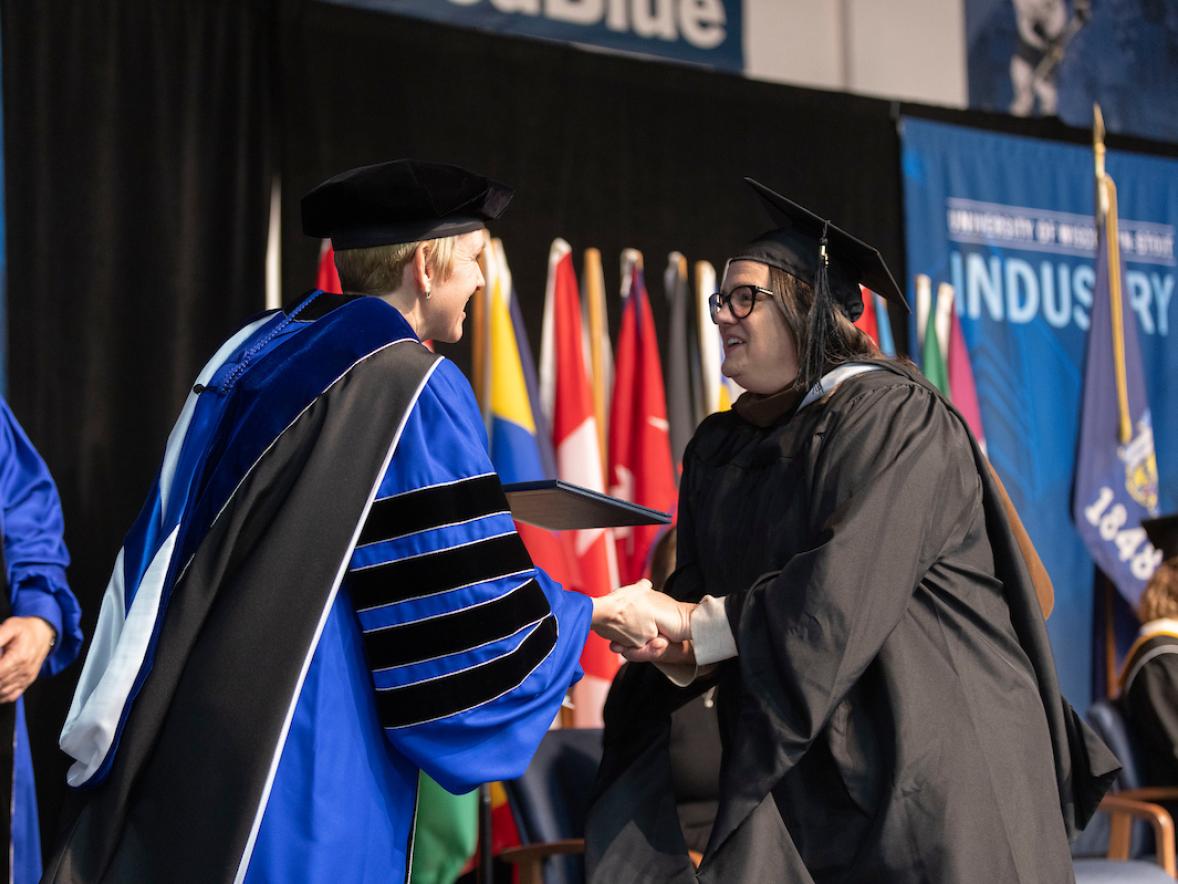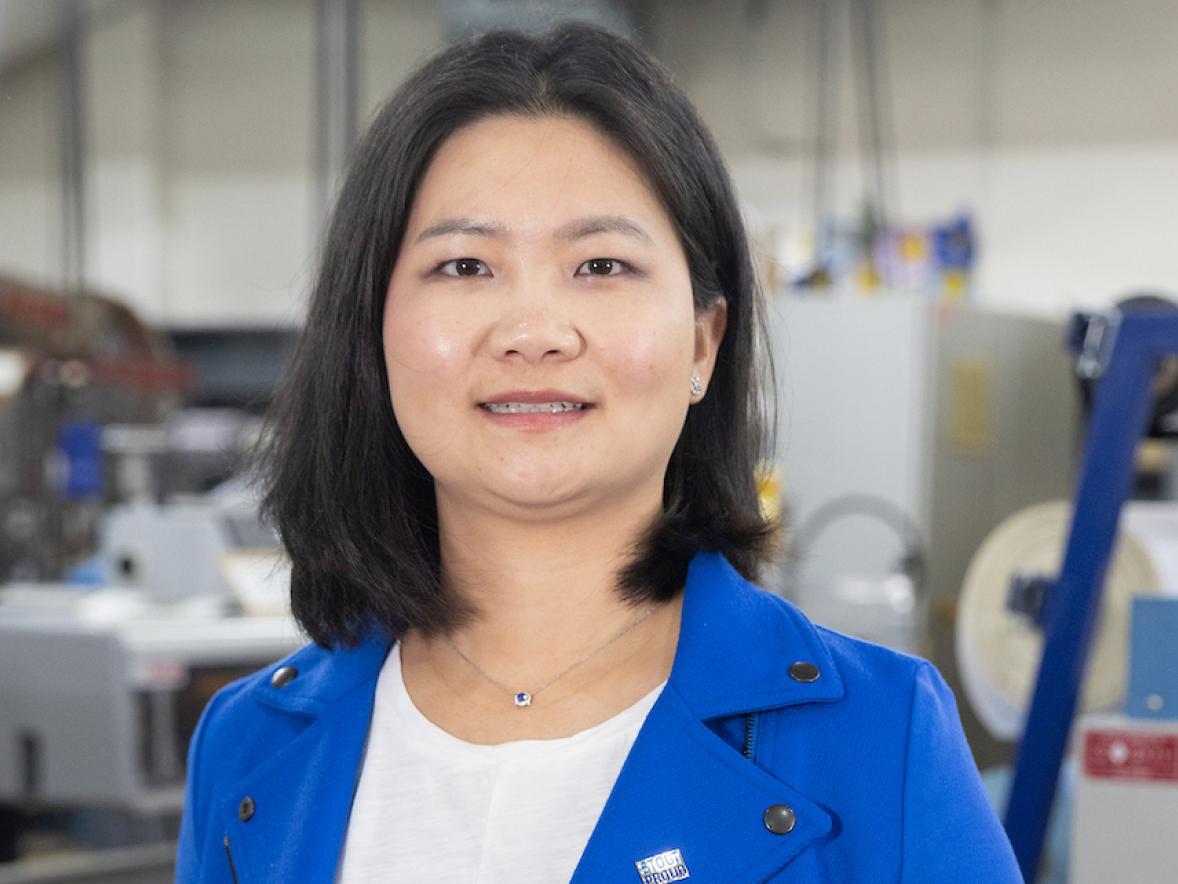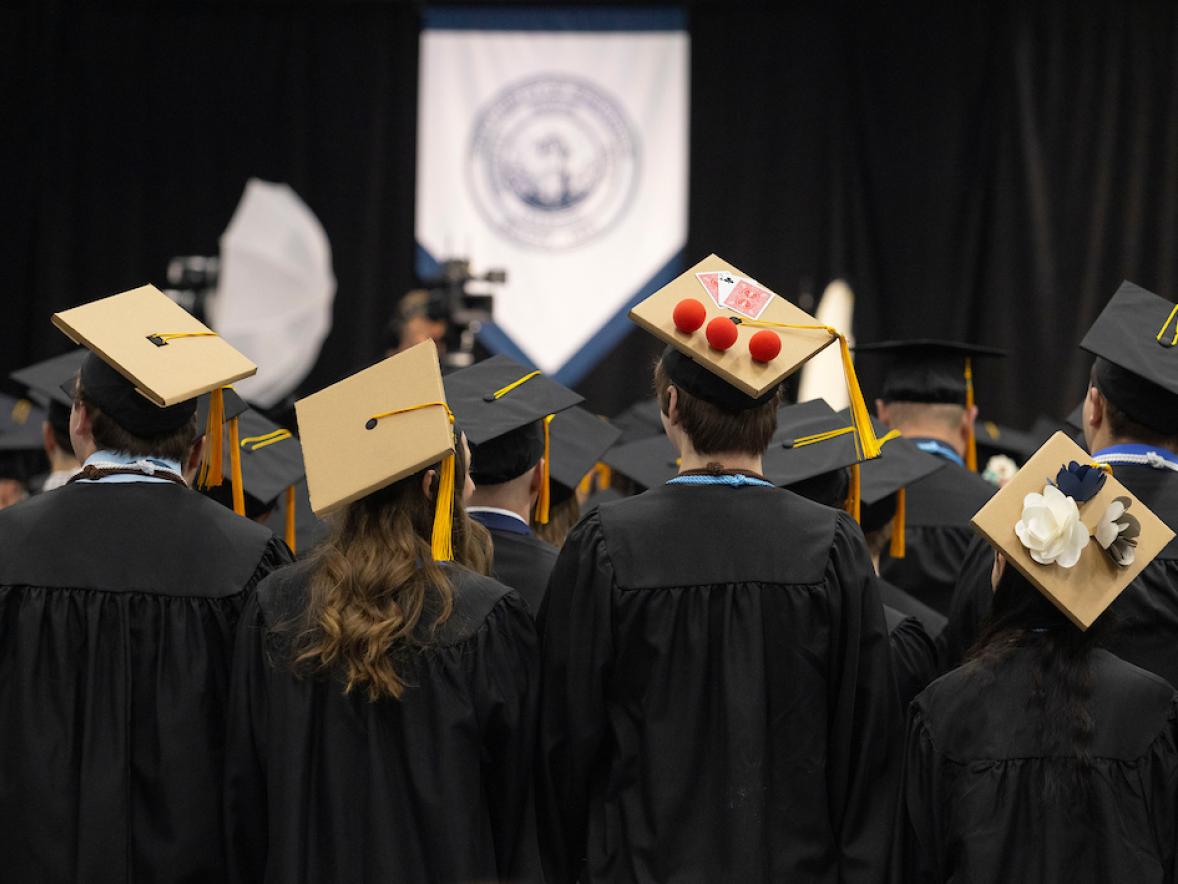For those unable to discern between hot and cold temperatures, scalds and frozen extremities are a danger.
A group of University of Wisconsin-Stout students designed and created a glove complete with a temperature sensor, an audible alarm and a readout with a temperature reading that turns red when a liquid could burn someone or turns blue when it is too cold.
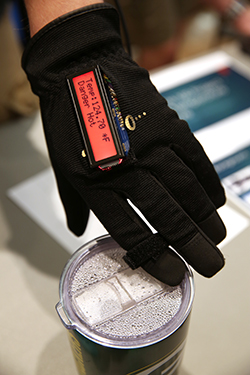 Jack Steffel, a junior computer engineering major from St. Michael, Minn., said he had a friend with hypoesthesia, a condition that involves loss of sensation. “Not having the sensation can really hurt you,” Steffel said. “You don’t even know you are doing it to yourself.”
Jack Steffel, a junior computer engineering major from St. Michael, Minn., said he had a friend with hypoesthesia, a condition that involves loss of sensation. “Not having the sensation can really hurt you,” Steffel said. “You don’t even know you are doing it to yourself.”
Other team members who helped create the glove as part of an Engineering Technology 100 class included Ethan Foss, a first-year student majoring in engineering technology from Appleton; Jake Thomas, a first-year mechanical engineering student, from Northfield, Minn.; and Craig Wyss, a first-year computer engineering major from Wilson.
Foss demonstrated with hot coffee how the glove warned the wearer. “We could have a glove with all five fingers having sensors, which would be helpful,” he said.
Thomas noted that the glove could be used in residences or in industrial settings and be adapted for feet.
The project was displayed as part of Research Day and the STEMM Student Expo in May at the Memorial Student Center.
A group of manufacturing engineering majors created a wheelchair blind spot monitor that uses two proximity sensors to warn wheelchair users if there is anything directly behind them and six inches away using a red light.
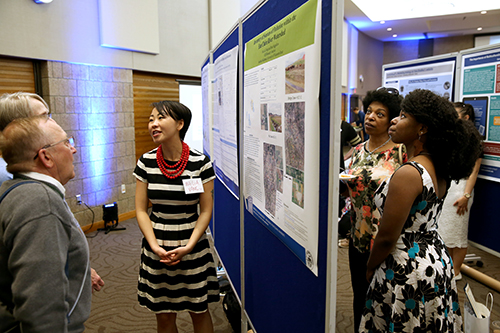
Nathan Kelley, a junior from Fond du Lac; Josh Frederick, a senior from Green Bay; and Hunter Moegenburg, a first-year student from Roberts, created the sensor for their Engineering Technology 100 class.
“It gives some extra safety,” Kelley said. “I learned a lot about disabilities. It’s kind of eye-opening to see.”
Other students developed a Wall-i, a wagon designed to be guided by a cell phone application via Bluetooth technology to carry items for those injured or with disabilities. Wall-i runs on two 13-volt batteries and has a battery life of about two hours.
Jack Thammavogsa, a sophomore mechanical engineering student from Minneapolis; Arda Temei, a first-year computer engineering major from Turkey; Gavin Hessler, a first-year mechanical engineering major from Roberts; and Parker Rosenbauer, a sophomore applied mathematics and computer science major from Manitowoc, designed and built Wall-i.
“In the beginning of the spring semester, I was carrying some really heavy stuff and I came up with the idea to have a robot carry it and sketched the idea,” Thammavogsa said.
Hessler said he broke his ankle in high school. “This would have been something I could have used to carry my books,” he said.
Rosenbauer sees a need for more automated systems like Wall-i.
“People are very hesitant to test new technology,” Rosenbauer said. “I think technology like this is very important. It’s easy for people to try something like this. The more they see this technology is reliable the more they are willing to trust bigger stuff like automated cars.”
###
Photos
A glove designed by UW-Stout students to sense temperature could help prevent scalds and frostbite for those people unable to discern temperature./ UW-Stout photos by Brett T. Roseman
UW-Stout McNair Scholar Mai Lia Vang describes her research on “Urban Phosphorus Runoff and Loading to Half Moon Lake, Wisconsin” at the Memorial Student Center.





